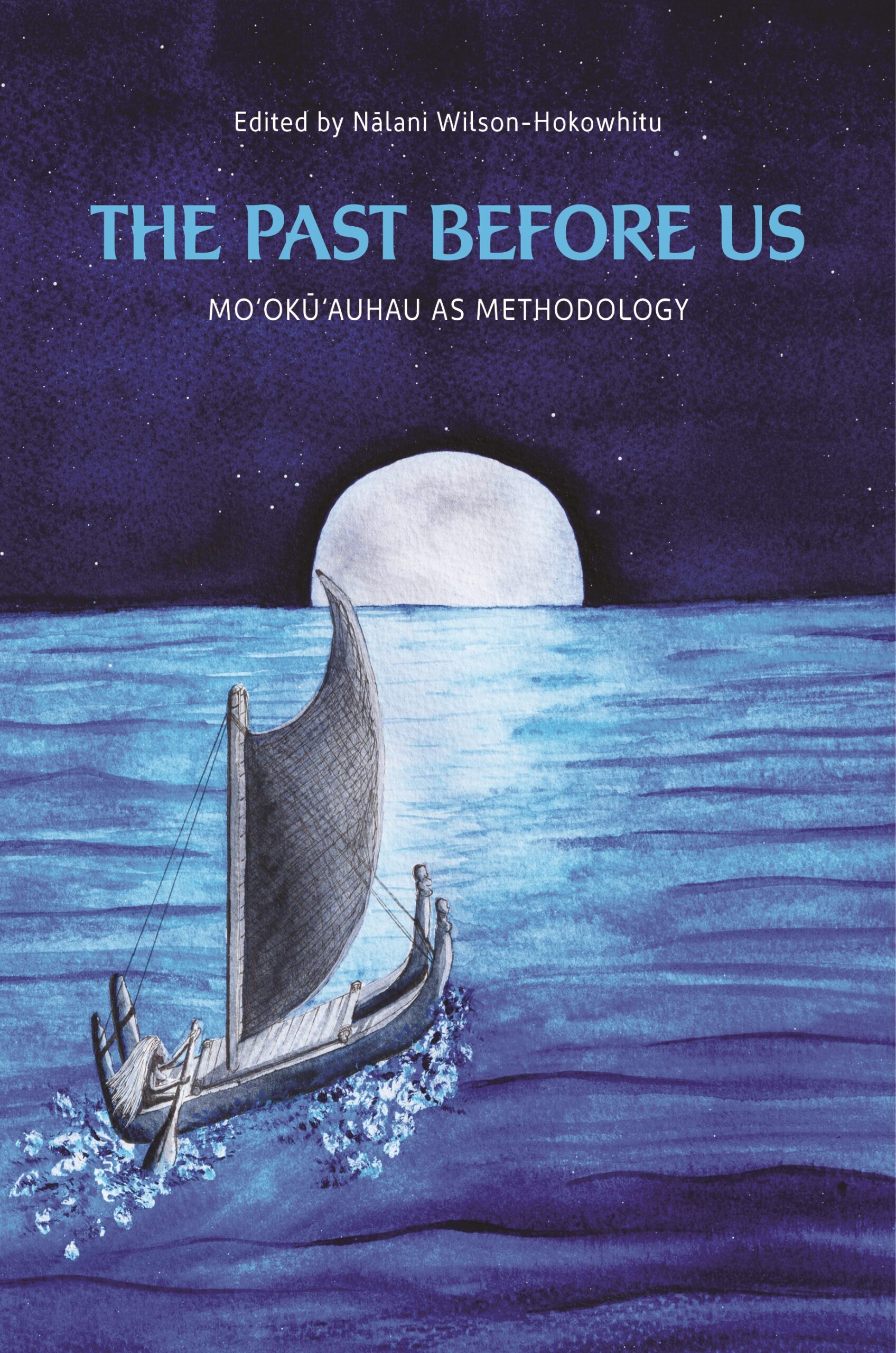The Past before Us: Moʻokūʻauhau as Methodology
- About the Book
-
From the Foreword—
“Crucially, past, present, and future are tightly woven in ‘Ōiwi (Native Hawaiian) theory and practice. We adapt to whatever historical challenges we face so that we can continue to survive and thrive. As we look to the past for knowledge and inspiration on how to face the future, we are aware that we are tomorrow’s ancestors and that future generations will look to us for guidance.” —Marie Alohalani Brown, author of Facing the Spears of Change: The Life and Legacy of John Papa ‘Ī‘īThe title of the book, The Past before Us, refers to the importance of ka wā mamua or “the time in front” in Hawaiian thinking. In this collection of essays, eleven Kanaka ‘Ōiwi (Native Hawaiian) scholars honor their mo‘okū‘auhau (geneaological lineage) by using genealogical knowledge drawn from the past to shape their research methodologies. These contributors, Kānaka writing from Hawai‘i as well as from the diaspora throughout the Pacific and North America, come from a wide range of backgrounds including activism, grassroots movements, and place-based cultural practice, in addition to academia. Their work offers broadly applicable yet deeply personal perspectives on complex Hawaiian issues and demonstrates that enduring ancestral ties and relationships to the past are not only relevant, but integral, to contemporary Indigenous scholarship. Chapters on language, literature, cosmology, spirituality, diaspora, identity, relationships, activism, colonialism, and cultural practices unite around methodologies based on mo‘okū‘auhau. This cultural concept acknowledges the times, people, places, and events that came before; it is a fundamental worldview that guides our understanding of the present and our navigation into the future.
This book is a welcome addition to the growing fields of Indigenous, Pacific Islands, and Hawaiian studies.
Contributors:
Hōkūlani K. Aikau
Marie Alohalani Brown
David A. Chang
Lisa Kahaleole Hall
ku‘ualoha ho‘omanawanui
Kū Kahakalau
Manulani Aluli Meyer
Kalei Nu‘uhiwa
‘Umi Perkins
Mehana Blaich Vaughan
Nālani Wilson-Hokowhitu - About the Author(s)
-
Nālani Wilson-Hokowhitu, Editor
Nālani Wilson-Hokowhitu is a research fellow at Te Kotahi Research Institute at the University of Waikato in New Zealand.
Contributors
- Marie Alohalani Brown
- Manulani Aluli Meyer
- ku‘ualoha ho‘omanawanui
- Hōkūlani K. Aikau
- David A. Chang
- Lisa Kahaleole Hall
- Kū Kahakalau
- Kalei Nu‘uhiwa
- ‘Umi Perkins
- Mehana Blaich Vaughan
- Reviews and Endorsements
-
- The Past before Us presents an inspiring window into Native Hawaiian ontology and methodologies, both critiquing Western academic research methodologies and offering practical alternatives drawn from the Hawaiian context. Nālani Wilson-Hokowhitu has artfully assembled pieces from eleven Native Hawaiian scholars and practitioners, a collective “committed to creating social, political, and epistemological change”. . . . Each chapter explores different aspects and applications of mo‘okū‘auhau, or the Native Hawaiian concept and practice of a deep and continuous social, spiritual, and genealogical connection to each other and all things across time. The result is a rich and multifaceted vision of sustainability as a form of continuity rooted in Native Hawaiian history and ontology.
—Emily C. Donaldson, Saint Michael's College, Colchester, Pacific Affairs, 93:3 (September 2020)
- The Past before Us presents an inspiring window into Native Hawaiian ontology and methodologies, both critiquing Western academic research methodologies and offering practical alternatives drawn from the Hawaiian context. Nālani Wilson-Hokowhitu has artfully assembled pieces from eleven Native Hawaiian scholars and practitioners, a collective “committed to creating social, political, and epistemological change”. . . . Each chapter explores different aspects and applications of mo‘okū‘auhau, or the Native Hawaiian concept and practice of a deep and continuous social, spiritual, and genealogical connection to each other and all things across time. The result is a rich and multifaceted vision of sustainability as a form of continuity rooted in Native Hawaiian history and ontology.
- Supporting Resources
-





